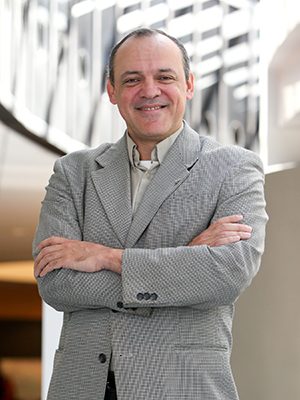Bauer Programs Explore Rapidly Changing Workplace & Curriculum
Published on October 15, 2018

Leiser Silva is an Associate Professor and Associate Dean of Graduate and Professional Programs
Innovation is more than a buzzword at Bauer College — it’s a dynamic approach to higher education that is essential in the midst of numerous business disruptions across a wide range of industries.
Two initiatives launched this fall highlight Bauer’s commitment to keeping pace with the rapidly changing workplace and share the potential to impact curriculum and programs: One seeks to evaluate and evolve Bauer’s graduate studies classes; the other is collecting data from students about what sectors of the energy industry they are interested in from a professional standpoint.
Leiser Silva, an associate professor in the Department of Decision & Information Sciences, was named associate dean for Graduate and Professional Programs at Bauer this fall, and he is leading the inquiry into graduate studies.
“I would say that the biggest challenge in graduate student education is the innovation and enhancement of students’ learning experience,” Silva said. “This requires us to be innovative on how we deliver our courses and have a serious look into making them even more challenging and more aligned with what the business community value and require from our MBAs.”
Silva created a task force that will produce a report on how to enhance the student learning experience through innovation, “both in the way we deliver our courses and their content,” he said. “The report will give us a legitimate and solid foundation, as well as a coherent framework for concrete initiatives aimed at enhancing the MBA learning experience.”
Greg Bean, executive director of Bauer’s Gutierrez Energy Management (GEMI), is overseeing a survey of UH students to better gauge specific areas of interest in the energy industry as it moves through a period of transformation.
“There are differing views about how rapidly that (transformation) is happening, but there is consensus amongst people that it is happening and that has significant implications for our students, for the industry and for Houston,” Bean said. Job opportunities in both traditional energy fields and newer renewable energy sectors will continue to fuel Houston’s economy for some time. Feedback from both students and potential employers will help shape energy degree and certificate programs going forward as well as GEMI’s industry outreach, research and event agenda .